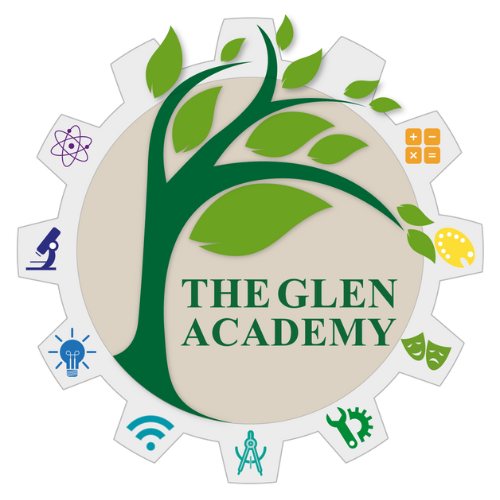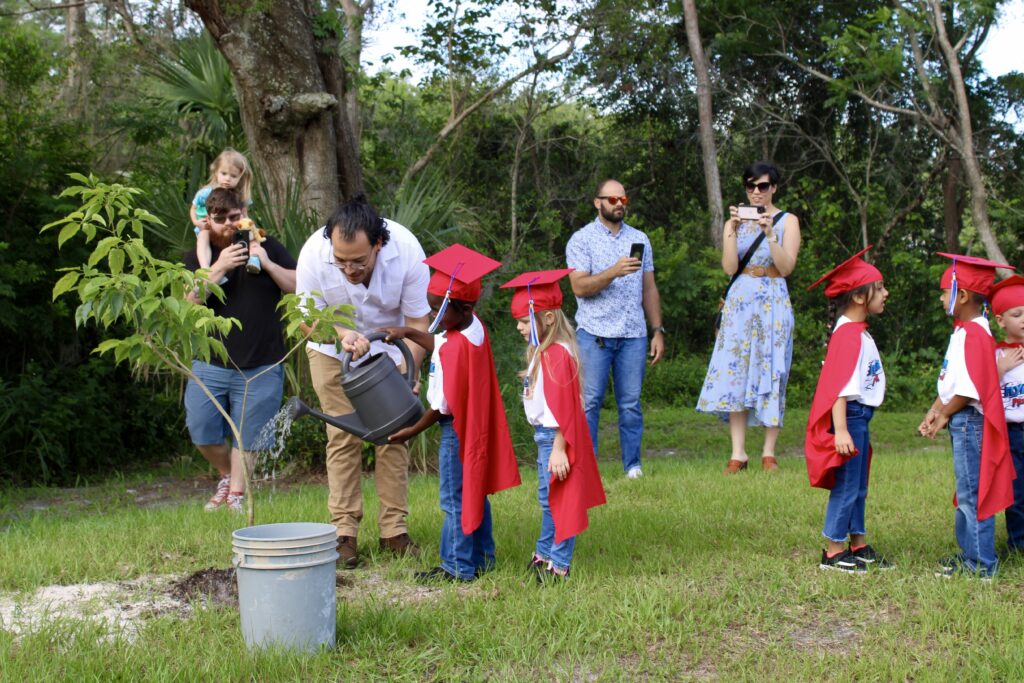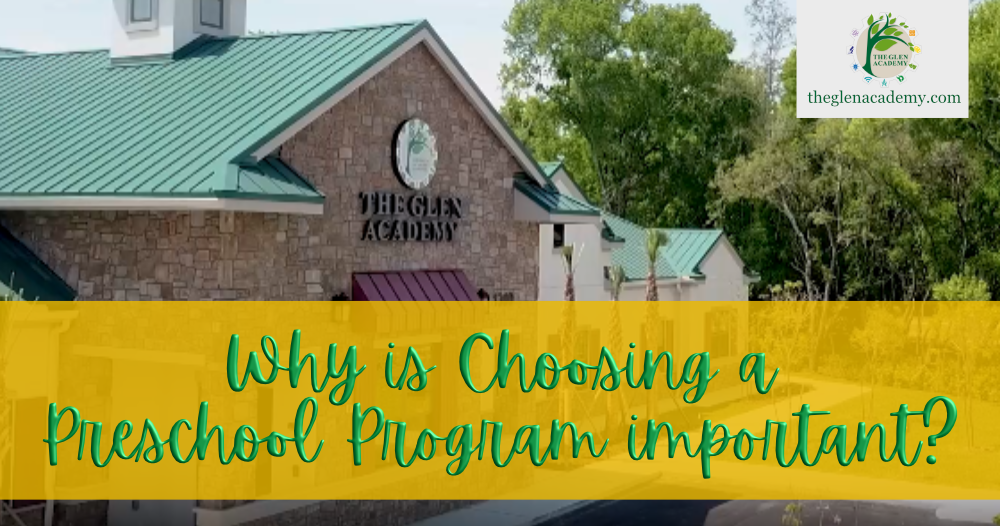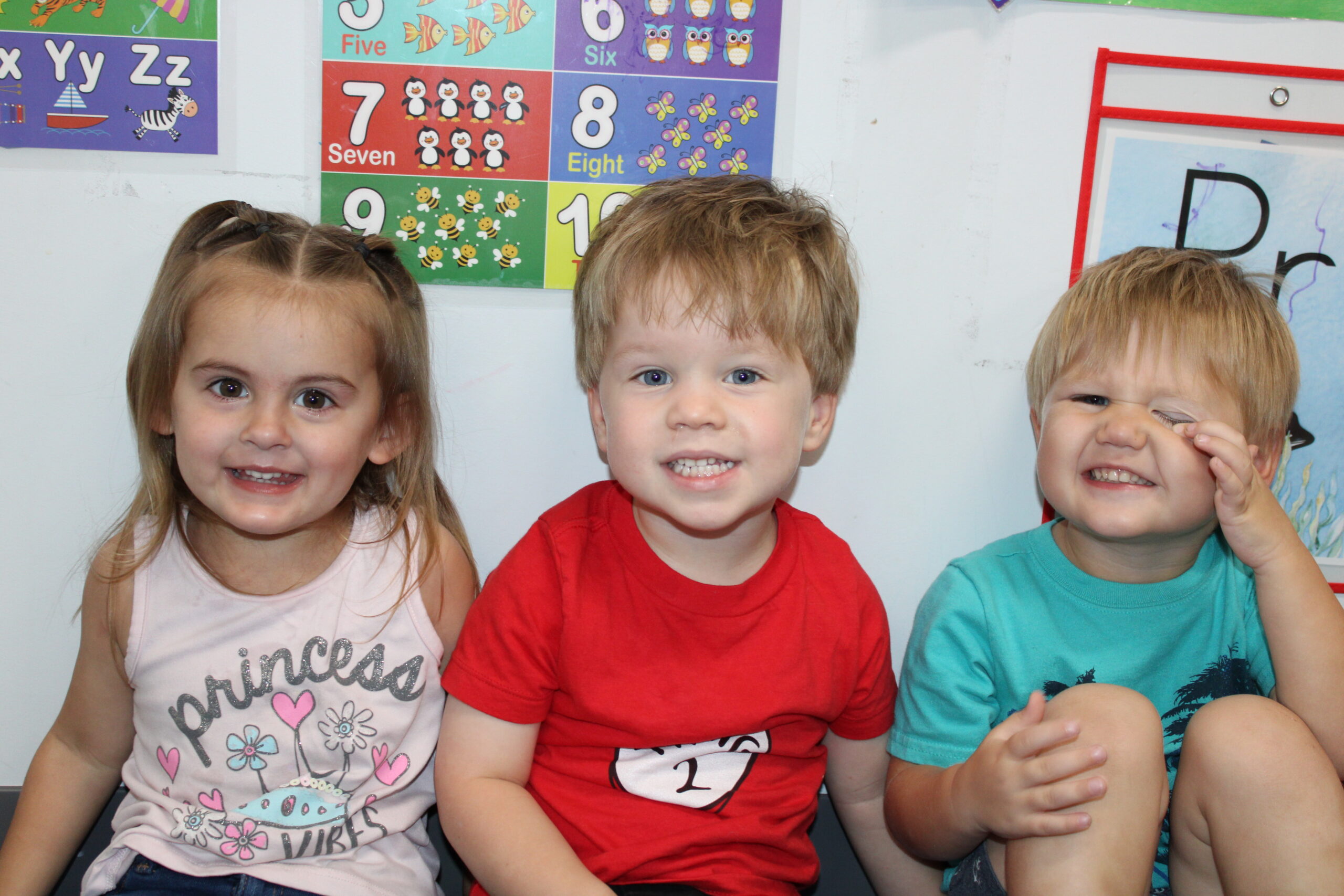Why is Choosing a Preschool Program important?
Why is Choosing a Preschool Program important? – Thanks for reading this blog article by The Glen Academy in Casselberry Florida. This blog article will help new parents understand what to look for when selecting a preschool for their little one. This article was written to answer the most frequently asked questions we get asked about. Enjoy!

Table of Contents
Picking the ideal preschool program for your kid is a critical choice that can essentially influence their instructive excursion and in general turn of events. With a huge number of choices accessible, it’s fundamental to consider factors like the nature of training, educational plan structure, instructor capabilities, and learning climate.
By choosing the right preschool program, you are establishing the groundwork for your kid’s future scholarly achievement and interactive abilities advancement. Investigate the different parts of preschool training to guarantee a positive and improved experience for your little one.
How to Select the Best Preschool Program for Your Child?
Embarking on the journey of choosing the best preschool program for your child can be both exciting and overwhelming. With a plethora of options available, it is essential to carefully evaluate each program to ensure it meets your child’s needs and aligns with your educational goals. By following a systematic approach and considering key factors, you can make an informed decision that sets the foundation for your child’s early education and development. Here is a short list to consider to better understand the Preschool Program:
- Educational Approach: Evaluate the curriculum and teaching methods to ensure they promote a balance of academic, social, and emotional development.
- Quality of Staff: Look for well-trained and experienced educators who create a nurturing and stimulating environment for children to thrive.
- Class Size and Student-Teacher Ratio: Consider the class size and ratio to ensure your child receives personalized attention and support.
- Facilities and Resources: Assess the facilities, resources, and learning materials available to enhance your child’s learning experience.
Why is it important to understand the ‘Benefits of Enrolling Your Child in a Quality Preschool Program’?
Enrolling your child in a quality preschool program can have a lasting impact on their development and future success. These programs provide a structured and enriching environment where children can learn essential skills, build social relationships, and prepare for formal education. By fostering a love for learning and curiosity at an early age, preschool lays the groundwork for lifelong learning and academic achievement.
Navigating Preschool Options in Florida is a must if you live in the state of Florida. Most likely, if you are reading this article – then you are in Florida. Therefore, guardians have an assortment of preschool choices to look over, including VPK projects and confidential childcare habitats.
Understanding the distinctions between these projects and their contributions can assist you with pursuing an educated choice that addresses your kid’s issues. Whether you decide on a state-financed VPK program or a confidential preschool, choosing a respectable and excellent program is vital to supporting your kid’s development and improvement in their early stages.
With that said here are a few of the benefits to consider. The benefits of preschool for three-year-old children are substantial and varied, including:
- Teaching kids to love learning
- Teaching children to share
- Socialization & social skills, i.e making friends, cooperating, listening, and building foundational conversation skills
- Handling minor conflicts such as emotional challenges, frustration, and anger
- Boost pre-literacy skills
- Builds a foundation for math
- Nurtures creativity and curiosity
- Satisfies a child’s thirst for knowledge
- Teaches how to make choices
- Teaches how to take care of themselves & each other
- Gives foundational opportunities for growth
- Shows how to follow directions
- Aids in emotional development
- Helps children in acquiring motor skills
- Allows for curiosity in the mind
- Structure & limited rules build the brain & develop cognitive skills
- Lays the foundation for academic success
- Language development skills
- Learning compassion skills
- Development of individuality
- Provides equal education across socioeconomic lines
- Specially skilled teachers
- Has health benefits by introducing proper health & nutrition services, requiring immunizations
- Sets parents’ minds at ease
- Encourages freedom of play
- Aids in self-esteem growth
What Factors to Consider When Choosing a Preschool Program?
There are many factors to consider when choosing a Preschool Program in Florida. When choosing a preschool program for your child, it’s vital to consider several key factors to ensure you make the best decision for their early education and development. By evaluating these essential aspects, you can select a program that aligns with your child’s needs and creates a positive learning experience that sets them up for future success.
Educational Approach
Curriculum: Examine the curriculum to determine if it offers a well-rounded education that focuses on key developmental areas such as literacy, numeracy, and social skills.
Teaching Methods: Look for programs that utilize interactive and engaging teaching methods to keep children interested and motivated to learn.
Philosophy: Consider the program’s educational philosophy and ensure it resonates with your beliefs and values regarding early childhood education.
Facilities and Resources: Observe if the classrooms are freshly painted, and does the classrooms offer state-of-the-art technology or not. These are things to keep an eye out for.
By taking time to evaluate the offices and assets given by a preschool program is fundamental to establishing a helpful learning climate for your kid. Search for programs that offer protected, clean, and invigorating homerooms, as well as admittance to progress in years fitting learning materials and hardware. Satisfactory offices and assets can improve your kid’s growth opportunity and commitment to the program. Remember a good preschool is always willing to offer a tour of the site – if they don’t that is a red flag.
Parental Involvement and Communication
Parental Engagement: Consider programs that foster parental involvement through regular updates, opportunities to participate in school activities, and open communication channels.
Feedback Mechanisms: Evaluate how the program seeks feedback from parents and addresses concerns to ensure transparency and collaboration in your child’s education.
Communication: Look for programs that prioritize clear and effective communication between teachers, staff, and parents to keep everyone informed and engaged in your child’s progress.

Parent Involvement at The Glen Academy Preschool Program

Benefits of Early Childhood Education for Infants
We recently did an article on this topic. But we felt it was important to highlight a few more things about the Benefits of Early Childhood Education for Infants. By exploring the benefits of early childhood education for infants reveals a multitude of ways in which these programs contribute to a child’s development and future success.
From fostering social skills to stimulating cognitive growth, early education plays a crucial role in shaping a strong foundation for lifelong learning. By delving into the advantages of these programs, parents can better understand the positive impact they can have on their child’s overall growth and well-being.
Enhanced Social Interaction
Development of Social Skills: Early childhood education provides infants with opportunities to engage in social interactions with peers and teachers, fostering essential skills such as communication, cooperation, and empathy.
Building Relationships: Through group activities and play, infants learn how to build relationships, share, and collaborate with others, laying the groundwork for healthy social connections in the future.
Stimulated Cognitive Development
Youth instruction programs for newborn children are intended to animate mental advancement through drawing in exercises that advance investigation and revelation. These projects assist newborn children with creating fundamental mental abilities, for example, critical thinking, decisive reasoning, and language procurement. By participating in age-fitting exercises, newborn children can reinforce their mental capacities and lay the foundation for future scholastic achievement.
Support for Physical and Emotional Growth
Physical Development: Early education programs provide infants with opportunities to engage in sensory-rich experiences that support their physical development, coordination, and motor skills.
Emotional Well-Being: By creating a nurturing and supportive environment, early childhood education programs help infants develop emotional resilience, self-regulation, and a sense of security and trust in their surroundings.
Exploring Pre-K Education Options in Florida
Exploring pre-K education options in Florida presents parents with a variety of choices aimed at providing young children with a solid foundation for their academic journey. These programs, such as the Voluntary Prekindergarten Program (VPK), offer structured learning environments that focus on preparing children for kindergarten and beyond. By understanding and exploring the different pre-K education options available, parents can make informed decisions that set their child on the path to lifelong learning and success.
What are the Benefits of VPK Programs?
- Free Prekindergarten Education: VPK programs in Florida offer free prekindergarten education to eligible four-year-olds, providing them with essential skills needed for school readiness.
- Structured Learning Activities: VPK programs incorporate well-designed learning activities that cover key areas such as literacy, numeracy, social skills, and emotional development.
- Qualified Instructors: These programs are led by qualified instructors who specialize in early childhood education and are dedicated to fostering a love for learning in young children.
How is a traditional Preschool different than VPK?
Traditional preschools focus on social skills and play-based learning, while VPK programs offer a more structured curriculum and academic preparation for kindergarten. The main difference between the two is the children’s age and their developmental abilities. In preschool, a student is between the age of 2 to 4 years old, while a child in pre-kindergarten is 4 to 5 years old.
Ideally, you want to select a preschool that can evolve with the child’s learning gains as their brain grows. A great preschool will have a VPK option embedded into their school. This is an important question to ask during a tour. If they don’t offer VPK for older youth – this is another big red flag.
Diversity of Pre-K Programs
Did you know that Florida brags a different reach pre-K training program? It is true, that in the past VPK, including private preschools, childcare focuses, and Montessori schools. Each program offers remarkable ways to deal with youth instruction, taking special care of various learning styles and inclinations.
By investigating the different choices and taking into account factors, for example, educational plan, class size, and instructor kid proportion, guardians can pick a pre-K program that best suits their youngster’s singular necessities and interests.
Community Engagement, Resources, and Support
- Parental Involvement: Many pre-K programs in Florida encourage parental involvement through volunteering opportunities, family events, and regular updates on children’s progress. Furthermore, VPK programs often encourage parental involvement through parent-teacher collaboration to support children’s learning at home.
- Community Partnerships: Some programs collaborate with local organizations and community resources to provide additional support services, enrichment activities, and family workshops. These collaborations with community organizations, schools, and local resources enhance the VPK experience by providing supplementary services, enrichment opportunities, and extended learning opportunities for children.
- Transitional Support to Kindergarten: Pre-K programs often offer transitional support to help children smoothly transition from pre-K to kindergarten, ensuring a seamless educational journey.
- Educational Support: VPK providers may offer additional educational resources, workshops, and parent seminars to equip families with tools and strategies for supporting their child’s learning progress.
How To Successfully Navigate VPK Enrollment in Florida?
Welcome to parenthood and yes, navigating the brave new world of VPK enrollment in Florida is part of it. This involves a parent (or grandparent in some cases) to understand the Voluntary Prekindergarten Program (VPK). Plus, they need to understand the process of enrolling their child in this state-funded early education initiative.
Did you know that VPK in Florida offers free prekindergarten education to eligible 4-year-olds? It does and it helps to prepare them for kindergarten and lays the foundation for their academic journey. There are several VPK enrollment options, parents can take advantage of this valuable opportunity to enhance their child’s early learning experience.
Eligibility and Enrollment Process
So what are the eligibility criteria a parent needs to know? To qualify for VPK enrollment in Florida, children must be at least 4 years of age by September 1 of the academic year they plan to enroll.
What are the Enrollment Steps to having your child be enrolled in VPK? Parents can begin the enrollment process by applying to the Early Learning Coalition of Florida, selecting an approved VPK provider, and ensuring all required documents are submitted promptly.
Does VPK offer various program options to choose from? Yes, families can choose from different VPK program options, including school-year programs, summer programs, and specialized instructional services based on their child’s needs and preferences.
Will my child benefit from enrolling in VPK? Enlisting your kid in the VPK program in Florida offers a scope of advantages that help their initial turn of events and school preparation. Taking part in VPK can assist kids with procuring fundamental pre-perusing, pre-math, and interactive abilities that are significant for outcomes in kindergarten and then some. By signing up for VPK, youngsters gain openness to organized learning exercises, association with peers, and qualified instructors who improve their mental, social, and close-to-home development.
Understanding the Role of Child Development in Preschool Programs
Understanding the Role of Child Development in Preschool Programs matters for new parents when choosing a good quality preschool. So, understanding the role of child development in preschool programs is fundamental to providing young learners with a solid foundation for future academic success.
Preschool programs are designed to support and enhance various aspects of child development, including cognitive, physical, social, and emotional growth. By recognizing the significance of child development in preschool education, parents and educators can create enriching environments that foster holistic growth and prepare children for a lifetime of learning.
How do you integrate Cognitive Development during Preschool Hours?
This is a popular question and we have 3 answers for you to read.
Language Skills: Preschool programs focus on enhancing language skills through storytelling, vocabulary building, and communication activities to support cognitive development.
Problem-Solving Abilities: Children engage in hands-on activities and puzzles that challenge their problem-solving skills and critical thinking abilities.
Early Math Concepts: Introduction to early math concepts such as counting, shapes, and patterns helps lay a strong foundation for future mathematical understanding.
Importance of Social and Emotional Development
Youngster improvement in preschool programs additionally underlines social association and profound prosperity. Through organized play and gathering exercises, kids figure out how to deal with their feelings, team up with peers, and foster sympathy. Furthermore, building positive associations with educators and colleagues encourages a feeling of having a place and constructs trust in group environments.
Why is fostering motor skills and healthy habits essential at Preschool?
Gross Motor Skills: Preschool programs provide ample opportunities for children to engage in physical activities that develop gross motor skills such as running, jumping, and balancing.
Fine Motor Skills: Activities like drawing, coloring, and using manipulatives enhance fine motor skills, hand-eye coordination, and dexterity.
Healthy Habits: Educating children about healthy habits like proper nutrition, regular exercise, and personal hygiene promotes overall physical well-being and sets the stage for a healthy lifestyle.
Comparing Daycare and Preschool Programs
How do you compare Daycare and Preschool Programs?
Comparing daycare and preschool programs involves understanding the key differences in their structure, educational approach, and focus areas. Both settings provide care and supervision for young children.
There are some differences to see easily once you begin to ask a few questions. The differences vary in their emphasis on early education and developmental activities. By examining the distinctions between daycare and preschool programs, parents can make informed decisions based on their child’s individual needs and developmental goals.
What is the difference in Structure and Educational Approach?
- Daycare: Daycare programs primarily focus on providing a safe and nurturing environment for children while parents are at work, offering basic care, playtime, and socialization opportunities.
- Preschool: Preschool programs are designed to offer structured learning experiences that focus on early academic skills, social interaction, and cognitive development to prepare children for kindergarten.
- Curriculum: Preschools typically follow a structured curriculum that includes age-appropriate activities, educational games, and opportunities for creative expression, whereas daycares may have a less formal educational approach. At The Glen Academy, we utilize the ‘Frogstreet’ curriculum. We will discuss that more thoroughly in a future blog article.
What is the difference in Parental Involvement and Communication for a daycare vs. a preschool?
Let’s unpack this question. The differences are clear once we identify what the expectations for each facility looks like. We have made a few bullet points to highlight the major differences.
- Daycare: Daycare programs may offer limited communication and involvement opportunities for parents due to their focus on caregiving responsibilities and daily routines.
- Preschool: Preschools often prioritize open communication with parents, providing regular updates on children’s progress, opportunities for parent-teacher meetings, and involvement in school events and activities.
- Parental Engagement: Preschools generally encourage parental engagement through participation in classroom activities, volunteering opportunities, and engagement in educational initiatives that support children’s learning at home.
Focus on Developmental Activities
Childcare focuses frequently on establishing a protected and agreeable climate where kids can play, mingle, and rest under the management of parental figures. Conversely, preschool programs consolidate deliberate learning exercises.
These exercises target explicit formative regions like language improvement, pre-math abilities, and social-profound development. Therefore these exercises are intended to animate kids’ psyches and improve their general advancement in anticipation of formal tutoring.

Why is Choosing the Best Preschool Program important? – Thanks for reading this blog article written by The Glen Academy!
The Glen Academy wrote this article to help you better understand ‘Why is Choosing the Best Preschool Program important?‘
If you still have questions, please call us and ask our caring staff members about them today. Follow us on Instagram, Google Profile, and Facebook now! Remember The Glen Academy loves caring for your child no matter what stage of early childhood he or she is in. Again, thanks for reading this blog article.
